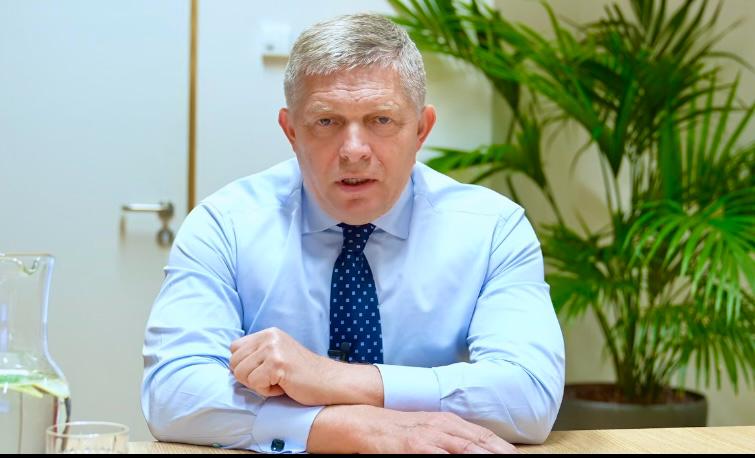Brussels – Slovak Prime Minister Robert Fico (Smer-SD) on Thursday at the European Council meeting in Brussels stated that he succeeded in ensuring that the possibility of “confiscation” of frozen assets of the Russian central bank for financing the so-called reparations loan for Kyiv was not mentioned in the joint statement on Ukraine. He announced this in a video post on the social network Facebook, as reported by the special correspondent of TASR.
Robert Fico requests that “the European Commission propose other options for financing Ukraine in the next two years,” claiming that his proposal was accepted. “Whatever decision is made, I want us to be completely clear about this in Slovakia. The government I lead will never, I emphasize, never, sign any loan guarantee for Ukraine for military expenditures. We will also not allocate a single cent from our state budget for this purpose,” Fico clarified. According to him, Slovakia is ready to help Ukraine, but only humanitarianly.
“The government I lead will never, I emphasize, never, sign any loan guarantee for Ukraine for military expenditures.” Robert Fico
The Prime Minister considers it a mistake that the initiative to use frozen Russian assets for a loan to Ukraine was made public before the European Commission provided answers to all possible stated risks. The plan “may encounter reality and end in failure at the next European Council in December, when a decision is to be made,” he added.
According to him, the leaders of the EU member states are aware of the risks associated with using Russian assets for Ukrainian needs, the risks of violating international law and lawsuits from Russia, but especially the risks of severe Russian retaliatory measures. He reiterated that Slovakia will never financially cover Ukraine’s military expenditures and reminded that according to the proposed plan, Ukraine is to receive “primarily for military expenditures” an additional 140 billion euros from the EU in the next two years.
“If we used this amount to increase competitiveness and at the same time reduce high energy prices, we would all feel a visible improvement in the European Union,” he stated.
The willingness of member countries to finance Ukraine’s military needs directly from national budgets, according to him, is decreasing, which is why there is interest in frozen Russian assets in the mentioned volume, which could be used as a loan for Ukraine, which will of course never be repaid, but for which individual EU member states are to provide guarantees. According to Fico, the Union should focus more on “a realistic peace plan for Ukraine and how to promote this plan as a still strong global power.” (October 24)
 go to the original language article
go to the original language article
